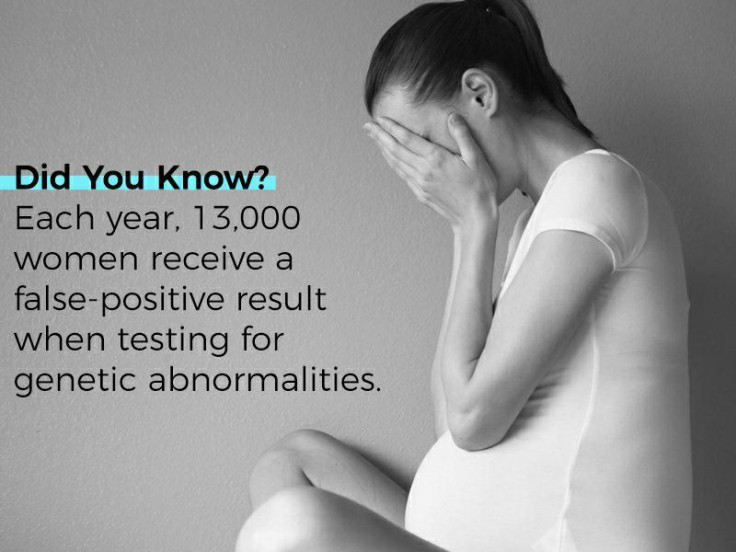Why Inclusion of NIPTs is Key to Unlock Equal Maternity Rights for Working Women

It is estimated that each year in the United States, about 171,000 pregnant women will receive a faulty prenatal screening test. Of these, about 4% (6,672 cases) receive an incorrect low-risk result providing false assurance to the mother, whereas the remaining 96% (164,916 cases) would receive an incorrect high-risk result, driving unnecessary anxiety. In real terms, this means that every day, 18 mothers will discover that their newborn is affected by a genetic issue, such as Down syndrome, on the day of delivery, instead of the early stages of pregnancy. Infants with challenging genetic conditions such as Down syndrome should be delivered at a tertiary center for optimal care, instead of a community hospital, and families lose this option by not learning early. On the flip side, each day, 451 additional pregnant mothers will unnecessarily be put through the anxiety of a baby in the womb at risk, forced to a specialist referral, where they are recommended invasive procedures that can pose the risk of real harm to the unborn child.
The good news is that all this distress is avoidable if all pregnant women are given equal access to the more accurate non-invasive genetic prenatal tests. However, despite the availability of accurate and advanced tests, pregnant women under the age of 35 are denied NIPTs by their insurance providers.
A Major Gap – Many Young Working Women left out
The advanced nature of non-invasive prenatal screening tests implies that they are selectively covered by insurers compared to the inaccurate serum screening test from the 1960s and invasive tests like CVS and amniocentesis. The two largest insurance providers in the U.S., Aetna, and United Healthcare cover non-invasive prenatal screening only for women who are above the age of 35. These companies are insurers to the largest employers in the U.S., and therefore, the employees are inadequately covered to avail the benefits of the non-invasive tests. In the U.S., an estimated early four million pregnant women are routinely denied coverage for the more advanced tests such as NIPT.
Higher Numbers of Down Syndrome Childbirths in Younger Women
The argument sometimes presented to deny younger women access to the superior genetic test is that the risk of genetic abnormalities rises with the age of the mother. Although the argument above sounds logical on the surface, the National Down Syndrome Society estimates that women under the age of 35 give birth to 80 percent of all babies with Down syndrome!
Peer-reviewed publications have demonstrated NIPTs as superior to standard screenings which combine blood tests with an ultrasound. A 2015 study published in the New England Journal of Medicine states that the standard screening missed over 20 percent of Down syndrome cases, whereas the newer cell-free DNA test detected all cases in a study that included 18,955 patients.
So, the question that arises here is that, why aren't more and more companies concerned about the welfare of the female employees, and negotiating with their insurance partners to embrace NIPTs in their standard insurance packages?
A Breakthrough is Finally Here
In January 2020, Cisco introduced the groundbreaking policy of extending a non-invasive prenatal screen test (NIPT) under its self-insured plans to pregnant women employees under the age of 35. Cisco has already negotiated with both Aetna and United Healthcare to cover NIPTs for mothers-to-be, regardless of their age. Karen Wiens, director of Cisco's global benefits, explained that Cisco negotiated with both Aetna and United Healthcare to start covering NIPT for women of all ages under the company's self-insured plans and include even those who are not identified as high-risk cases. Cisco brought this into effect in January 2020. Another organization that is amongst the first ones to take a step in the right direction is search-giant - Google.
The way forward
In a world where talk is cheap, it is refreshing to see companies like Cisco and Google that are willing to walk the walk, put their money where their mouth is, and put their employees' welfare before profits.
While the action by Cisco and Google is very positive, it will be even more encouraging if other leading employers, including Apple, Facebook, Dell, AT&T, and Boeing, many with a reputation as the best companies for female employees, also work out fully comprehensive maternity packages with their insurance partners. With the voice of young women in these organizations, it will be encouraging if more organizations follow the example set by Cisco and Google. This would go a long way in substantiating these companies’ reputation as workplaces that fulfill equal rights for all. The time is right for greater advocacy and action.





















